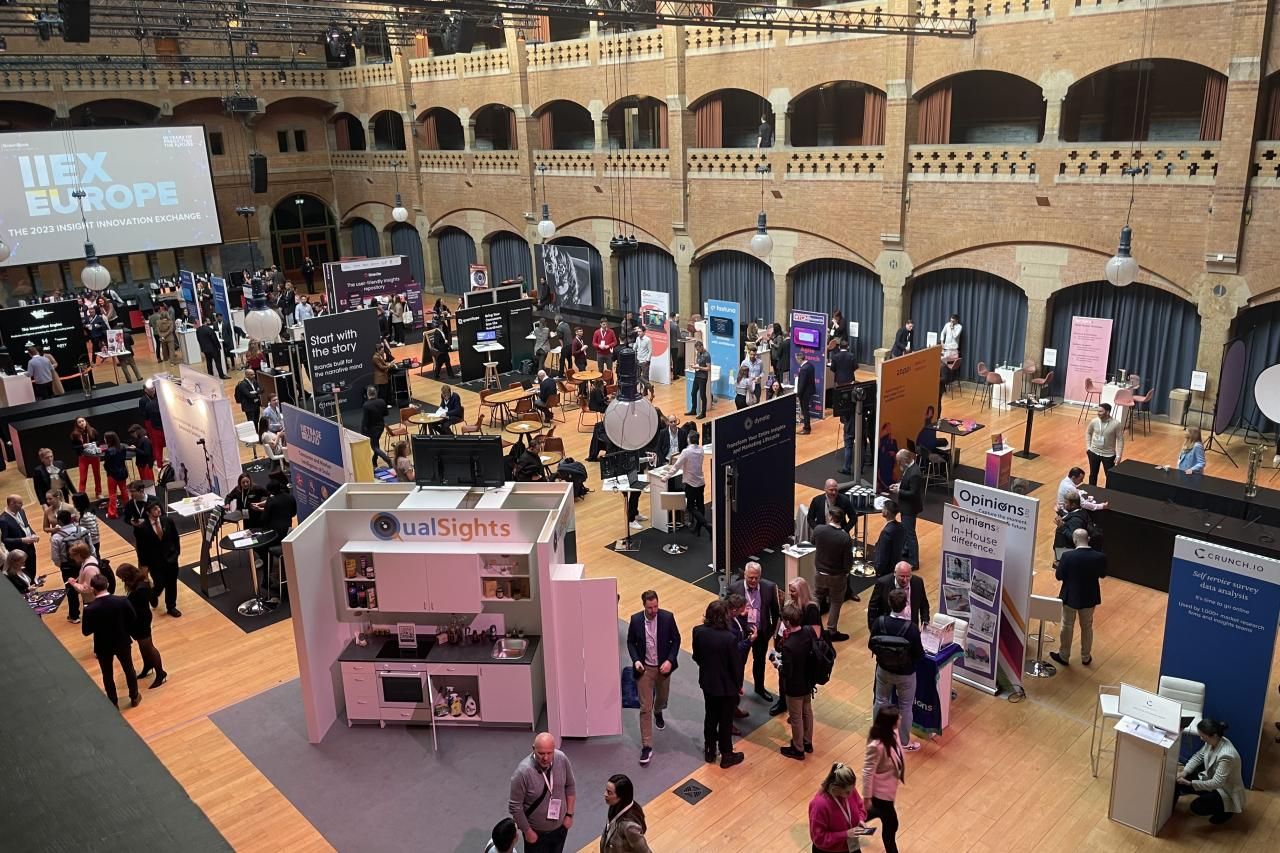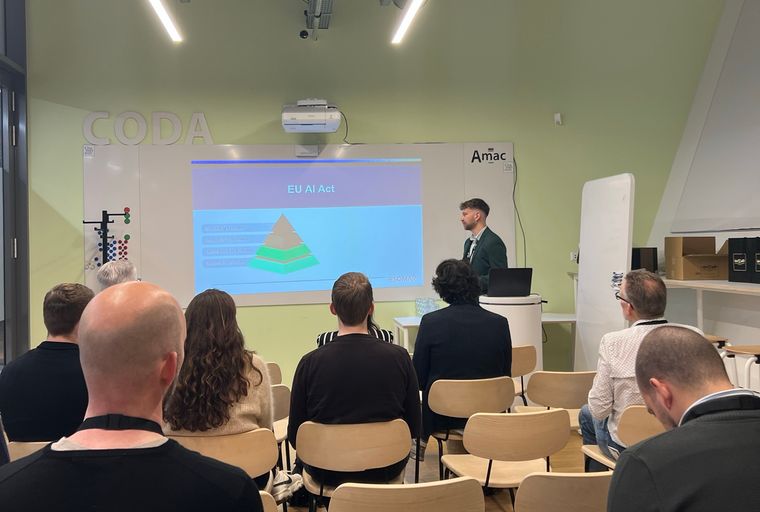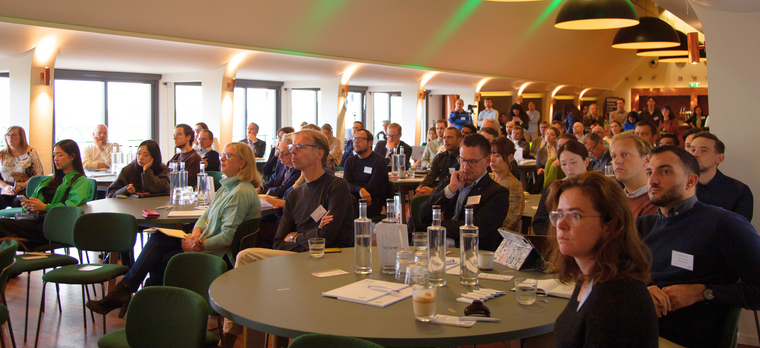IIEX EU Musings: The more things change, the more they stay the same
The more things change, the more they stay the same

Amsterdam hosted 2024’s Insight Innovation Exchange (IIEX) on the 25th and 26th July. It was always going to be hard for IIEX 2024 to follow IIEX 2023. This is because of where Generative AI was in its hype cycle a year ago.
But IIEX Europe did a fantastic job again. They brought the latest thinking to the European research community. But also, they reminded us of some fundamentals that will always be relevant.
The more things change….
1. A refined definition of innovation
Innovation isn’t just technology. Yes, technology is important. But there’s intellectual innovation as well. And the latter was on-show at IIEX.
We heard from language platform Babble. They told us about how they merged the BOOST model of behaviour change with UX design. They also added in personalization to improve the learning experience.
Kerry Foods and Nestle both showed how their organisations were using trends and foresight to understand the future of food.
Clients from Purina and PepsiCo showed how they added research tech and experimentation into their innovation process. And in doing so, showed how their innovation research methods have evolved. But also, how the innovation process is also changing.
2. New forms of data
Two presentations showed how businesses are using publicly available data. Purina showed how data from product reviews can be valuable. Especially to support innovation. But this wasn’t only about review data. It was also about the role that loss aversion and social proof played within the data set. And a separate talk pointed out, "behavioural science isn't going anywhere."
The Lufthansa Innovation Hub showcased their TMNT platform. This is a must-use for everyone who works in travel and mobility.
Within this, Lufthansa showed how they’re using many data sources. Wikipedia updates serve as indicators for incoming trends. Feedly and Crunchbase data to signal changes in the investment landscape. And best of all? Lufthansa share their TMNT insights via thought leadership research.
3. An evolved view on trends
Trends aren’t new. And as Black Swan and Nestle highlighted, trend users suffer from ‘The Paradox of Plenty.’ There are so many trends to potentially follow. But which do businesses pursue? Black Swan and Nestle then went onto show how they used AI to convert data points to topics. Then topics to trend topics. And trend topics to category drivers.
Kerry Foods shared a different view on trends. Kerry’s view as they enable consumers to move along their food nutrition spectrum is to move from trend-based forecasts to future scenarios. The difference? Trends focus on one preferable outcome. Future scenarios focus on potential futures and how to embrace them.
…the more they stay the same.
4. Behavioural science is here. And it’s going nowhere
Rory Sutherland asked in a recent article “is everything behavioural science?”. IIEX EU suggests that most things are. Crispin Beale highlighted behavioural science as being a trend that’s here to stay. Even presentations that didn't mention behavioural science still had content related to it.
Mark Earls discussed how to make time work best for us. Time is about perception. As is behavioural science. And Skim showed how they used psychological distance to make strong claims about sustainability and food.
5. Clients big pain points persist
The GRIT report and a client panel showed that clients still want agencies to be better at; 1) insight communication. 2) linking insights to commercial actions. 3) dealing with business leaders.
These are three things’ clients have long called for us to be better at. The fact they’re still calling for improvements suggests that we’ve not upskilled enough to support clients here. Or that the demands placed on clients in these areas are continually increased. I suspect a mixture of both is true.
However, Just Eat stated the clear benefits of being better at landing insights in a commercially relevant way. Doing so means businesses see insight as more valuable. This leads to increased insight budgets. This means agencies have the chance to win more business.
6. Generative AI. Always interesting. Always improving
At IIEX EU 2023, Generative AI was the only game in town. So where does it stand now, in 2024? From a methodology perspective, little has changed from a year ago. Chat bot surveys. Data scraping. Thematic analysis. Synthetic data. AI-based personas. They’re all still at the forefront of what Generative AI can do for the insight sector.
And that’s a good thing. Why? Last year, change was fast. And we need time to see use cases and best practices emerge. They will help embed Generative AI firmly into research. Luckily, IIEX was on hand to do this.
Stravito and Heineken showed how Generative AI was democratizing insight. Ikea demonstrated their internal Pulse CX tool. And Fairgen illustrated a practical use case of how synthetic data can augment a small subgroup within a large sample.
Heraclitus, a Greek philosopher, said some 2,500 years ago:
“There is nothing permanent except change”.
But conversely, psychologist Carl Jung said:
“Our life is the same as it ever was…The same physiological and psychological processes that have been ours for hundreds of thousands of years still endure”.
IIEX Europe was a testament to how these two different perspectives balance out. Much is changing. But just as much is staying the same too.
Jack Miles
Editor in Chief at Research WorldJack specialises in quantitative research for international clients across an array of sectors. These studies have led him to work with brands such as Jaguar, Navistar and Volvo. His main research interests are brand research and consumer trends, with a focus on quantitative methods and the use of statistics to derive solid strategic planning for clients.
He has a particular focus on developing creative ad-hoc quantitative methods that use a range of data sources. He can also be found writing papers for a range of well-known publications such as Admap, Huffington Post and Research World.
Outside the office, Jack can be found training in martial arts, in which he holds a 3rd degree black belt in Taekwon-do, and partaking in various endurance sports.


